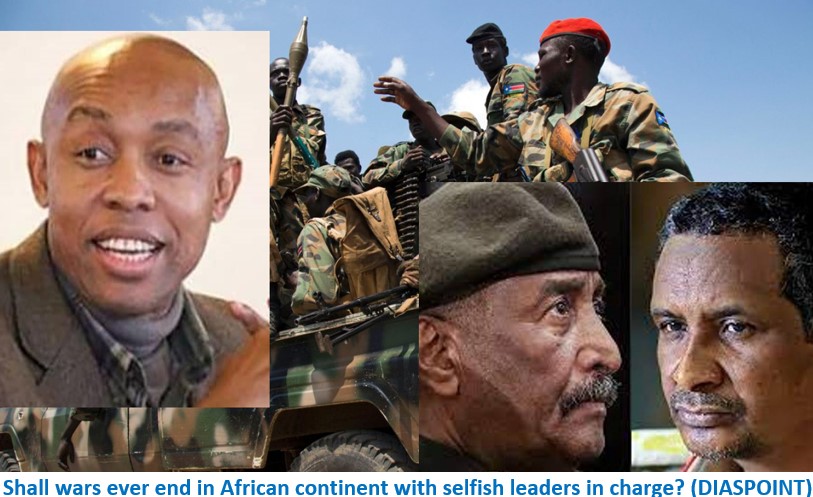For Africa, why Sudan matters
Post By Diaspoint | May 1, 2023

There are two countries whose wellbeing and stability reach into nearly every part of Africa. One is the Democratic Republic of Congo, which is nominally in the central African region but which shares borders with nine countries extending to all of the continent’s four other regions – Angola, Burundi, the Central African Republic, the Republic of the Congo, Rwanda, South Sudan, Tanzania, Uganda, and Zambia. Unsurprisingly, the DRC is in the regional organisations of every region of Africa except those of the North and of West Africa.
The second is Sudan. With a current landmass of 1,886,068 km2 Sudan is nearly double the size of Nigeria and the third largest country in Africa behind only Algeria and the DRC. Its neighbours include Chad, Central African Republic, Egypt, Eritrea, Ethiopia, Libya, and South Sudan; and its regional reach extends to the Middle East and North Africa, Central Africa, Eastern Africa, and West Africa. Even more, Sudan’s geo-strategic significance covers nearly all of the continent’s fragilities, including the Congo Basin, Horn of Africa, the Great Lakes of Africa, the Gulf of Aden, the Maghreb, the Nile Basin, the Sahel, and the Indian Ocean. A popular land route for Muslim pilgrims and a magnet for all manner of irregular hawkers of violence, Sudan holds the key to nearly all of Africa’s significant strategic exposures from governance, through Climate Change, to international terror.
But Sudan has known little peace since independence in 1956 as a Condominium of Egypt and the United Kingdom. In 67 years of Independence, it has seen at least 17 attempted coups, six of which were successful. Two of those successful coups have occurred in the last four years, the first in April 2019 resulting in the overthrow of the 30-year long rule of General Omar Al-Bashir, and the second in October 2021 resulting in the overthrow of the power-sharing arrangement that was to return the country to civil rule in 2022.
On both occasions, Egypt, itself at once both uneasy neighbour worried about the course of the Nile (which substantially flows through Sudan before emptying in its territory) and former colonial power, was always an enthusiastic business partner with the Armed Forces of Sudan. To many people, General Burhan, who nominally heads the Sovereignty Council, as the ruling military arrangement in Sudan is called, is a client of Egypt.
These two recent coups were a joint enterprise between the two most organised and best financed entities in the country: the Sudan’s armed forces commanded by Abdel Fattah al-Burhan, a four-star General; and the Rapid Support Forces (RSF) commanded by Mohammed Hamdan Dagalo, better known by the nom de guerre, Hemedti. The RSF is the new name for an entity that used to ….Read More from original source
Read More from original source
